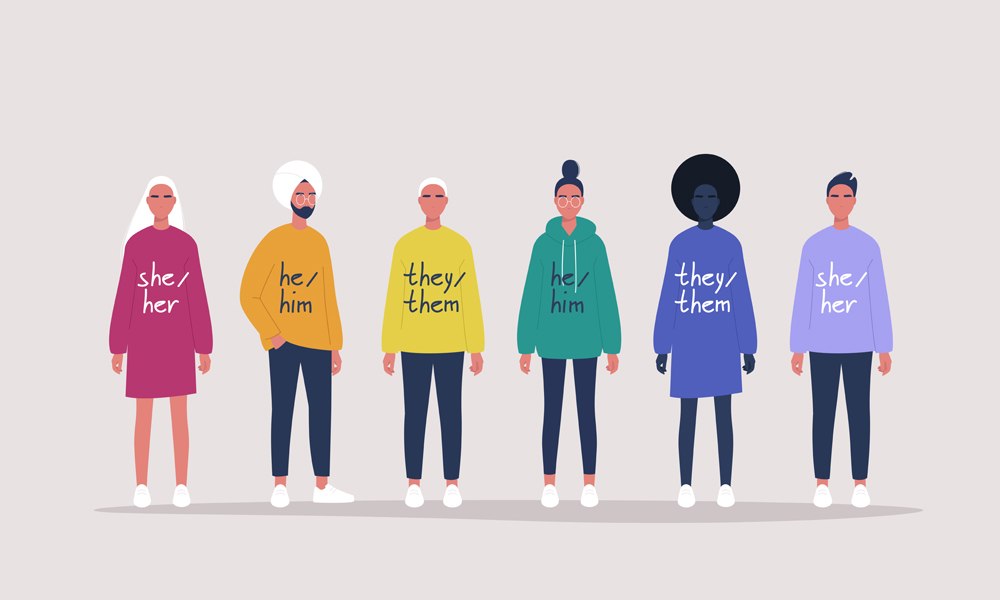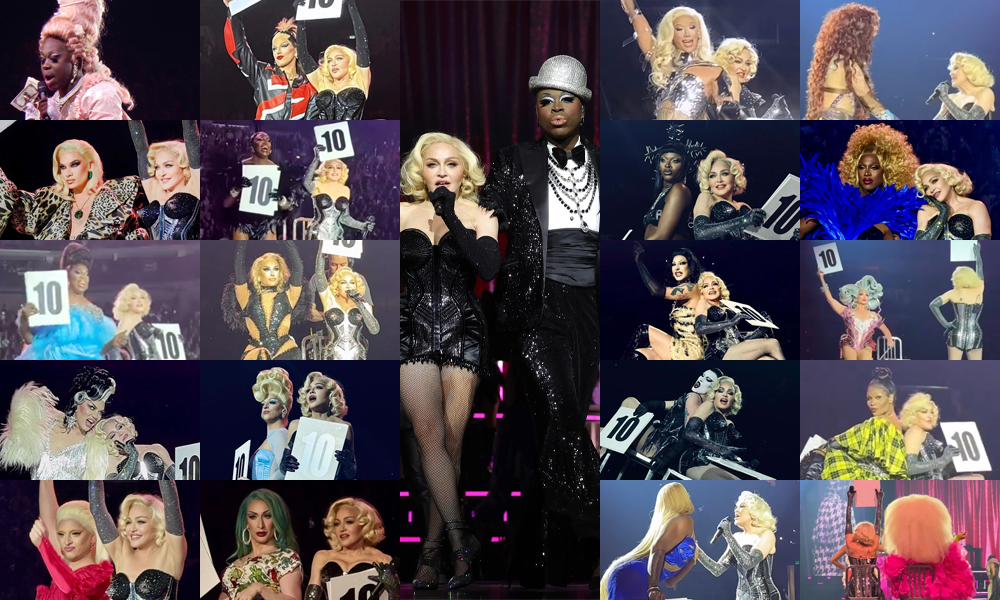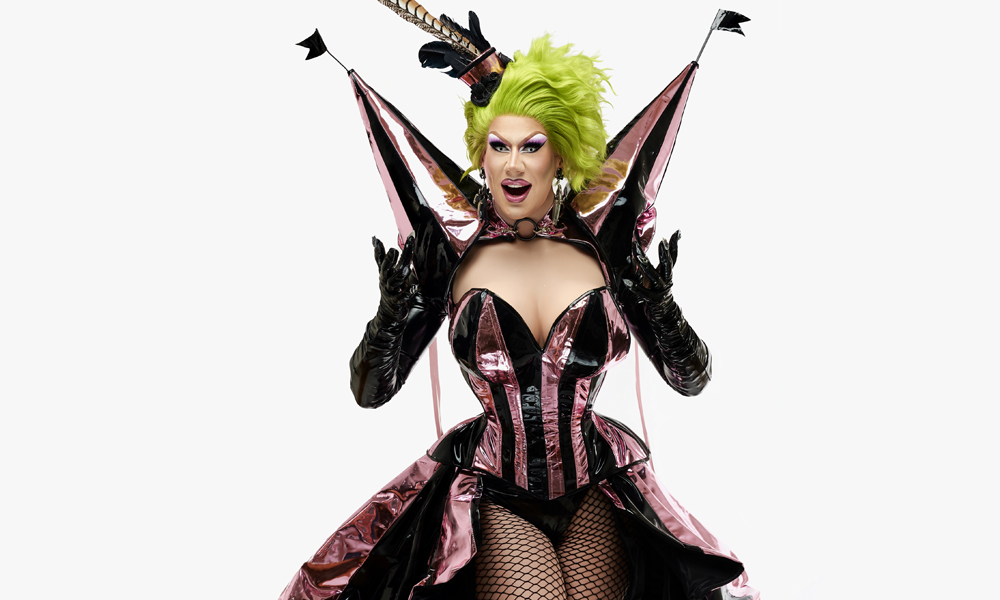When someone asks you to use their pronouns, they are asking you to respect their identity…
By Christopher Turner
In May, Instagram introduced a new feature making it easier to address people by their preferred pronouns, announcing that it would allow people to add up to four pronouns to their profile, which they could then choose to display either publicly or only to their followers. That means users can now choose from a variety of pronouns including he/him, she/her and they/them, among others, which will appear in small grey letters next to the username on that profile.
It was a simple update, but an incredibly important addition to any platform to create an inclusive environment. And it ultimately helps push the conversation forward about preferred pronouns, identity, and the elimination of archaic notions of the gender binary.
“Instagram is excited to normalize pronoun usage while promoting a more thoughtful community,” the company said of the announcement.
The discussion, debate, and in some cases all-out social media wars about whether or not pronouns are important has never been more prominent, as more trans and non-binary people are living openly. So let’s set the record straight: they are important. Pronouns are a way that we identify with the world, and when someone asks you to use their preferred pronouns, they are asking you to respect their identity.
Pronouns are connected to gender expression, which the nonprofit organization GLAAD defines as the “external manifestations of gender, expressed through a person’s name, pronouns, clothing, haircut, behaviour, voice and/or body characteristics.”
But why are they important?
One of the main reasons why it is so important to normalize the use of preferred pronouns is because other than our name, pronouns are one of the main ways that people identify and call us.
Imagine your legal first name is James, but throughout your entire life, your family and friends called you by your middle name of Robert. Every birthday cake, every holiday card from your grandparents, every time your mom yelled at you to get to the table for dinner, all you’d hear was, “Robert!” Then one day, you tell a friend that your legal name is James and they say, “OMG, I’m going to call you James from now on!” And you’re all like, “But I don’t go by James. James means nothing to me. In fact, I feel really uncomfortable when people call me James because it’s not what people call me or what I respond to.”
The way we call people by the names they give us is very similar to how pronouns work. Basically, people tell you their pronouns and then…you just use them. Like a name, pronouns are personal, and using someone’s pronouns correctly quite simply shows respect for the person you’re interacting with.
Normalizing correct pronoun usage
For cisgender people who have never had to worry about being called by an incorrect pronoun, sharing gender pronouns might not seem that important because they are used to being properly identified without any questioning or misgendering. However, it needs to be said that the same reassurance cannot be guaranteed for some trans people or those who do not identify within binary perceptions of gender, which sees males and females (who go by he/him/his and she/her/hers, respectively) as the assumed norm. Trans, non-binary and gender-nonconforming people (who may go by they/them) face misgendering and discrimination for their identities every day. For those in communities that conform to the gender binary, sharing one’s preferred pronouns, and politely asking for someone else’s pronouns, is an exceptionally easy way to enact better allyship.
The burden of normalizing correct pronoun usage should not be solely on trans and gender-nonconforming people. Cisgender people should also begin sharing their pronouns, as this means trans, non-binary or gender-nonconforming individuals will not feel singled out when they share theirs. By sharing their pronouns, cisgender people can establish sharing pronouns as something that’s not simply done in LGBTQ2+ settings, but in all settings. In certain environments, like workplaces or classes, taking the initiative to share pronouns helps to create a safe space for people of these communities, which can be incredibly comforting in helping them feel welcomed and accepted.
Moreover, having cisgender people share their pronouns deconstructs the idea that everyone’s gender can be assumed, something that often results in misgendering. The idea that pronouns can be assumed by one’s outward appearance conforms to a gender binary and, ultimately, the stereotyping of gender expression. Through demonstrating that gender identity is not something that can/should be assumed, this alleviates pressure for those whose identity is more fluid and normalizes the idea that identity is not simply one or the other (male or female).
A new generation
Instagram’s update includes everything from he, she and they, to the less common ze, zie, per, xe, fae, ve, vi and e/ey. While pronouns like they are already becoming normalized in society – many Canadian college and university students in new classes are already asked to confirm their pronouns, for example – the move is important in normalizing terms that many people may not have heard or used before.
One in four LGBTQ youth use pronouns or pronoun combinations that “fall outside of the binary construction of gender,” according to a 2020 study by the Trevor Project, an LGBTQ suicide prevention organization.
“The results show that although LGBTQ youth are using pronouns in nuanced ways, the majority who use pronouns outside of the gender binary use either familiar pronouns or combinations of these familiar pronouns to express their gender,” the study said. “An individual’s pronoun expression, or even the decision to avoid them altogether, is a very important reflection of a person’s identity. Respecting pronouns is part of creating a supportive and accepting environment, which impacts well-being and reduces suicide risk.”
It’s not just younger generations that are changing with the times. In fact, both the Canadian Press and American Press style guides, which are used by news organizations across the continent, now accept “they” as a gender-neutral singular pronoun. Merriam Webster officially added “they” to its online dictionary as a grammatically correct nonbinary pronoun (it was also its Word of the Year for 2019).
Conversations around pronouns are also happening in workplaces across the country as organizations place a greater emphasis on making language more inclusive. For example, Air Canada has altered its greeting to say “everyone” rather than “ladies and gentlemen.”
“Pronouns matter, and adding inclusive pronouns to a contact form is more than just a demonstration of allyship,” GLAAD president and CEO Sarah Kate Ellis said in a statement after US President Joe Biden took office in January and WhiteHouse.gov updated its contact form to include gender-inclusive pronouns and prefixes. “Research has shown that recognition and respect of our pronouns can make all the difference for our health and well-being – especially when it comes to LGBTQ youth.”
While changing our language doesn’t solve prejudice or guarantee acceptance, it still makes an impact, and at least that’s a step in the right direction: an act of inclusion.
—
CHRISTOPHER TURNER acted as guest editor for this issue of IN Magazine. He is a Toronto-based writer, editor and lifelong fashionisto with a passion for pop culture and sneakers. Follow him on social media at @Turnstylin.






POST A COMMENT